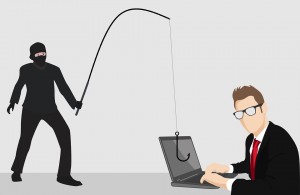Beware of Digital Marketing Scams
- At February 21, 2020
- By rbadmin
- In Uncategorized
 0
0
Obinna Ekezie, co-founder and CEO of the African travel agency Wakanow.com, warns his fellow entrepreneurs in Forbes about the growing problem of digital marketing scams.
He hired one marketing agency after another before finding one that delivers results without ripping him off.
Before I hired my current service provider, I dealt with a few that claimed to provide a quality product at a cheap price. A few were outsourced to countries that are known for the proverbial “snake oil.”
[…]
It’s like an SEO company guaranteeing the number one position on Google. This is an impossible guarantee, as are the quality guarantees of $5 hourly web developers and 50,000 Instagram friends for $100 (fake friends, of course).
He offers some good advice, starting with the fact that you must research an agency before signing a contract. It’s always a good idea to Google the name of a company you’re unfamiliar with along with words like “scam,” “fraud,” and “rip off.”
Just as important—and this is something Ekezie didn’t mention—take a look at the agency’s clients. Professional agencies have professional clients. If an agency you’re vetting is cagey about who else they’re working with, run away.
If you’re in the tech industry, look for agencies with clients like Adobe, Microsoft and Amazon. If you’re in the travel business, your best bet is an agency that partners with Travelocity, Kayak, and Hotels.com.
The last thing you should want is one that charges five dollars an hour. That’s barely half the minimum wage in the United States. There is no chance—none—that you will find competent marketing professionals anywhere in the world willing to work for so little.
Would you hire a lawyer for five dollars an hour? Would you buy a car for 50 dollars? How about a house for 1,000?
It’s a cliché to say there’s no such thing as a free lunch, but it’s a cliché for a reason. It’s true. Likewise, there’s no such thing as high quality work for what amounts to slave labor wages. We can promise you that anyone who agrees to work for basically nothing is either incompetent, a scammer, or both no matter which country they live in.
Likewise, be very careful if you hire someone on freelancer websites like Upwork. Some quality freelancers use these sites, to be sure, but so do rank amateurs. Anyone who charges anything in the same time zone as minimum wage will do a terrible job. They may not be fraudsters, but trust us: professionals cringe when we see writers, editors, graphic designers, and marketing “experts” willing to work for so little. We don’t cringe because the amateurs undercut us. Talented folks will always be able to find work. We cringe for the people who think it’s a good idea to hire these amateurs.
You get what you pay for. There is no getting around this. If you want quality work in any field, it’s going to cost you the market rate.
Artificial Intelligence Is About to Plateau
- At February 10, 2020
- By rbadmin
- In Uncategorized
 0
0
According to the BBC, researchers believe we may be on the cusp of what they call an artificial-intelligence winter, with AI only being able to perform a narrow set of tasks well.
There’s a discernible pattern here. The hype around AI has peaks and valleys. Some describe the peaks as “AI summers” and the valleys as “AI winters.” Those labels only make sense, though, if you’re describing the hype. AI abilities don’t decline during winters the way the outdoor temperatures drop. Only the hype exhibits an objective decline.
When thinking about or describing AI itself, the word “plateau” works much better. And we should expect periodic plateaus in the development of AI abilities. Moore’s Law, which states that the number of transistors in integrated circuits doubles every two years or so, doesn’t apply here. AI simply cannot advance exponentially.
Moore’s Law is strictly limited to circuit development. It can’t apply to AI any more than it can apply to your golf game, your ability to learn how to play the guitar, or the speed at which you can master higher math. Not only is progress in those areas not exponential, it’s not even linear. Ask any golf pro or rock star about their progress, and they’ll tell you that they repeatedly plateaued for a period of time before their next breakthrough, after which they plateaued again for a while.
It looks like that’s exactly what’s happening now with AI. The hype hasn’t quite died down yet, but it’s about to. And it needs to. A decade ago, talk of machines becoming smarter than humans was everywhere, most famously with Ray Kurzweil’s book The Singularity Is Near. Yet machines still can’t even edit a blog post properly let alone run the world. Software like Grammarly and Microsoft Word will destroy a piece of writing if given free rein to make editorial changes. They are both wrong up to 95 percent of the time. You’re better off not using them at all than accepting every suggested edit. You certainly won’t want to upload your consciousness to a computing cloud that can’t properly clean up a sentence.
Meanwhile, a whole swath of the general public, steeped in sinister dystopias like The Matrix and The Terminator, fear that artificial intelligence may well wipe out humanity entirely at some point. Less pessimistic scenarios have robots destroying nearly every job imaginable, menial and professional alike, leaving us to live like demoralized, unemployed house pets in the best-case scenario.
With the hype gearing up to go into remission, doomsday fantasies will hopefully follow.
Taking More Downtime Improves Productivity
- At February 04, 2020
- By rbadmin
- In Uncategorized
 0
0
Americans take less vacation time than anyone else in the Western world. In the United States, we like to say that an overworked person “works like a dog.” In Europe, they say an overworked person “works like an American.” It’s even worse in Japan. They have a word there, karoshi, that means “death from overwork.” In the U.S., we have suicide hotlines. Japan has karoshi hotlines and even protesters in the streets demanding “No more karoshi!”
The American middle class is somewhat more prosperous than many of its European counterparts, so we do get something for our efforts, but that doesn’t mean we’re doing everything right, even if you think the tradeoff is worth it.
Ohio University found that the most productive 10 percent of employees don’t work a full eight-hour work day. On average, they take 15-20-minute breaks every 52 minutes. And it found that nurses who work six hours a day are 64 percent more productive (and 20 percent happier) than nurses who work eight hours a day.
This shouldn’t really be all that surprising. We all know from our own experience that we’re less productive when we’re tired.
Our minds and bodies need to recharge. If you’re almost out of juice but keep working anyway, your energy, motivation, engagement, and creativity will crash. They might not crash to zero—you’ll still be able to sit in front of your laptop and produce something—but you won’t be able to produce very much, and what you do manage to knock out may take you twice as long and only be half as good.
Individually, we know this, but our culture steadfastly refuses to recognize it. The American work ethic is a wonderful thing, and it’s critical to our prosperity, but it leaves us with this blind spot. Overwork is something we don’t talk about much except at home and among our friends. It’s hardly ever mentioned in the workplace. Most businesses are obsessed with productivity, as they should be, and yet they fail to take this obvious and empirically proven fact into account, that additional rest time boosts productivity.
There are things every one of us can do about this even if we can’t reduce our work hours, starting with recognizing the difference between productive downtime and wasted downtime. Eating bon bons on the couch while watching Dr. Phil reruns is wasted downtime. It allows you to rest, but it doesn’t recharge you. You’re also wasting downtime if you beat up on yourself for not working. Remind yourself that you will get more done if you take some quality time off.
But you can’t take a single weekend and call it good for the rest of the year or even the rest of the month. You have to build it into your life in order for it to work properly. Start here:
- Wake up early but don’t start work early. Spend that time existing in a quiet state by yourself. Make a cup of coffee and sit on the patio, or go for a walk in the park or just around the neighborhood. Don’t read the news on your phone, and for goodness’ sake don’t check your work email. Nobody expects you to be productive during this time; nobody who doesn’t live with you even knows you’re awake.
- Spend your lunch hour the same way—which means not at your desk, even if you stop working while eating. Eat in a restaurant, in a park, or at home if you can. Even the break room is better than at your desk.
- Spend entire days doing nothing at all when you can. Most exhausted people find they can spend all day at the beach watching the waves without getting bored if they can just give themselves permission to do so without guilt-tripping themselves. An entire day lounging in a hammock with a compelling novel is like charging your cell phone all night.



